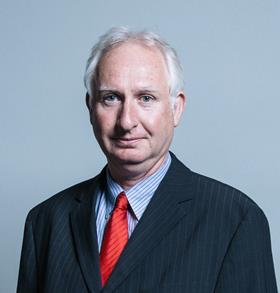The World Organisation for Animal Health (WOAH) has officially reclassified the UK’s Bovine Spongiform Encephalopathy (BSE) risk status to negligible.

According to the Department of Environment, Food and Rural Affairs (Defra), the downgrade is a “major boost” for the food and farm sector. Defra stated that more avenues will now be open for trade with other countries, as the improved risk status for beef and bovine products is recognised.
It went on to claim that changes to control measures will reduce operational burden and release financial savings for the abattoir and meat processing industry. The downgrading risk status marks a “major step forward”, reflecting decades of rigorous controls and opening the door to expanded trade and renewed confidence in UK beef.

Farming Minister Daniel Zeichner stated: “Today’s announcement is a major step forward and will deliver a real boost to our hard-working cattle farmers, who will now have more avenues open for trading our excellent beef products.
“It is also a huge vote of confidence in this Government’s commitment to rigorous animal health standards and biosecurity.”
NFU livestock board chair David Barton commented: “After the devastating impact of BSE, when thousands of animals had to be culled, it’s excellent to see British farmers’ commitment to robust controls and surveillance now recognised by WOAH.”
“It is a major step forward for the UK livestock sector.”
David Barton, NFU
Barton continued: “Achieving negligible risk status brings significant benefits – not only cost savings in processing and the ability to utilise more of each carcase, but also greater confidence in the quality and safety of our beef in international markets. It is a major step forward for the UK livestock sector, enhancing its global reputation and potentially unlocking new market opportunities for British beef.
“Today’s announcement delivers a much-needed boost for producers and the wider supply chain. British beef is in demand both at home and abroad, and now is the time to grow the sector. Our 2035 vision for beef outlines the trade policies, supply chain fairness and sustainability policies needed to support that growth going forwards.”
Natasha Smith, deputy director of food policy at the Food Standards Agency (FSA) said: “This good news reflects that our strict controls in place to protect consumers such as controls on animal feed, and removal of the parts of cattle most likely to carry BSE infectivity, have helped make sure there is no food safety risk.
“Although the meat industry will be now able to use more of the carcase, consumers can be reassured that strict food safety controls remain in place. Food Standards Agency Official Veterinarians and Meat Hygiene Inspectors working in all abattoirs in England and Wales will continue to ensure that the safety of consumers remains the top priority.”
“We hope that the improving UK-EU relationship offers an opportunity to seek earlier EU recognition of our status.”
Nan Jones, BMPA
Nan Jones, British Meat Processors Association (BMPA) technical policy manager, said: “This milestone is of significant value to the industry. To illustrate, the ability to recover mesenteric fat alone could generate value of approximately £10 million per year.
“Given the substantial benefits this change brings to our members, we hope that the improving UK-EU relationship offers an opportunity to seek earlier EU recognition of our status.”

Jonathan Eckley, Agriculture and Horticulture Development Board (AHDB) international trade development director, added: “This is welcome news for the UK beef sector. It highlights the strength of our animal health and food safety systems, reinforces the UK’s reputation for high-quality beef, and supports ongoing efforts to grow our export markets.”
UK Chief Veterinary Officer, Christine Middlemiss, commented: “WOAH’s recognition of the UK as negligible risk for BSE is a significant milestone and is a testament to the UK’s strong biosecurity measures and the hard work and vigilance of farmers and livestock keepers across the country who have all played their part in managing the spread of this disease.
“This is the latest example of the UK’s global reputation as a world leader in biosecurity and our new status will improve UK trade for beef and bovine products and reduce the operational burden and create financial savings for the abattoir and meat processing industry.”















